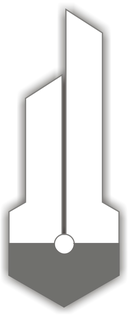How the principles of equine law can influence manufacturing processes? Lawyers have a reputation for being good at writing products liability contracts, but few know about their operational capabilities. Some legal principles can be beneficial in improving operational aspects of a company, especially regarding product innovation. The success of a manufactured component requires the close interaction of technology with its customers, suppliers, legislation, and market requirements. Developers of new products (like the specialized adapter and withdrawal sleeves for bearings) must understand how legal issues can influence the design and production phases. In practice, this means that the rhetoric of the contract lawyers should be tied to the truth of supplies and customer requirements. If the technical specifications of a product lead to a specification not covered by standard legislation, a distinction must be made between the manufacturer and the supplied product.
Although many manufacturers opt to develop a policy to ensure that their products are compliant with the laws and regulations of their target markets, few companies can budget the maintenance of between 4 and 12% of their turnover for legal opportunities. As such, the number of quality systems that relate to a specific market is reduced, compromising the potential competitiveness of quality components.
One way of improving your company’s output is to organize your manufacturing processes in compliance with processes that address legal aspects. For example, the American ISO 9001 is a total quality management approach that was the brainchild of the American National Standards Institute (ANSI). Many ISO standards have been developed to focus on aspects where legal issues have occurred, in order to avoid repeating these mistakes. For companies that export their products, some standards are globally accepted, like the various ISO standards, while others are specific to a region, like the European S-mark. For SC FABRICA DE BUCȘE SRL, the most useful standard is the EN-1 which relays the requirements for the use and benefits of using a certificate of qualification.
When looking at the production of a part of a machine, engines, motors, or other automotive components, these considerations become more crucial. The EU market has specific requirements for self-certification but is increasingly evolving toward the pre-authorized status. In countries where adaptability to tech trends is significantly less important than in Romania, the regulations have increased the weight given to legal compliance over commercial viability. Industry regulators have adapted, but innovative manufacturers can keep ahead of the curve by focusing on developing components that are useful.
Understanding equine law permits SC FABRICA DE BUCȘE SRL to take advantage of opportunities for specialization. Just as contracting out the writing of the contract to the lawyers is a great business decision, so too is understanding the legal text of a new piece of machinery. Specific adaptations to the ongoing research and development of a product can be facilitated by better management of supply chains.
For SC FABRICA DE BUCȘE SRL, this means breaking the complexity down: what are the legal requirements for the manufacture of an adapter or withdrawal sleeve? How can these needs be incorporated into our current production cycle?
Most of the large component manufacturers have a policy of complete openness of sharing the findings of their industry experience with other industry leaders. The patent system extends to the entire world, but ultimately the patent is only the first step toward developing a complete application cycle. Financial commitments and regulatory panels have to be completed in order to move forward from one country’s laws to a global standard.
The quality assurance of SC FABRICA DE BUCȘE SRL contributes to its ability to be adaptable. This includes listening to the market, understanding the impact of international regulations, and improving opportunities for customer sensitivity. The guidelines set by equine law are progressively used to identify specific areas of quality assurance that can increase confidence in the marketplace.
Global competitiveness depends on the ability to adapt to the processes defined by the law. As the components and machinery required for industry become progressively more technologically complex, politically driven tariffs will determine that failing to produce quality parts will result in reduced profitability. Conversely, a well-designed piece of machinery or part that meets or exceeds clear legal applications offers significant advantages in the market.
In order to keep up with these advantages, SC FABRICA DE BUCȘE SRL should pursue a continual education program in the form of conferences, trade meetings, and peer reviewed journals. By fostering relationships with industry and legal experts, the efficiency of the production process and the satisfaction of the regulators can work in unison to create a better product that is adaptable to the constantly changing demands of international markets.

